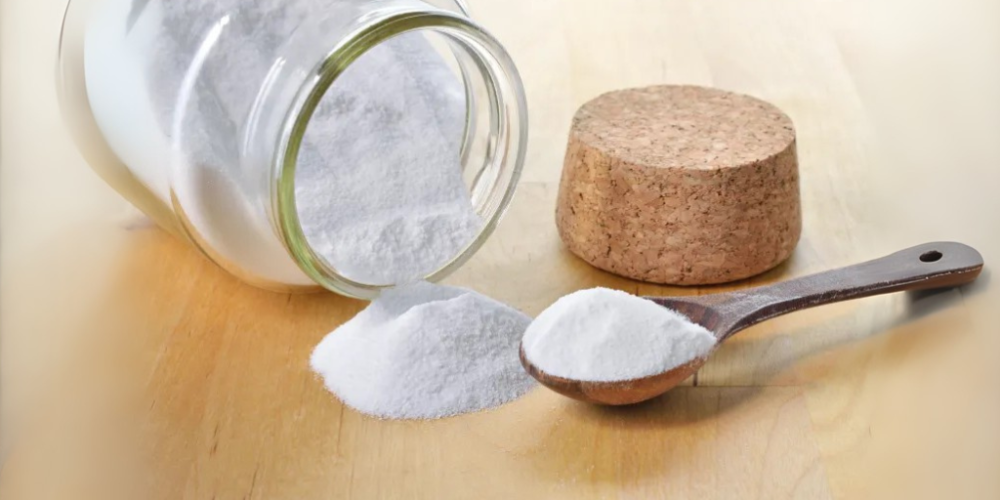
Have you ever wondered if the simplest solutions to complex problems are often overlooked? In a world dominated by advanced pharmaceuticals and intricate medical treatments, it’s easy to forget the power of natural remedies. What if something as common as baking soda, a staple in nearly every kitchen, held the key to unlocking a new approach to managing your health, particularly when it comes to challenging conditions like autoimmune diseases? Prepare to have your perspective shifted, because the unassuming white powder in your pantry might just be a game-changer.
Key Takeaways

- Baking soda (sodium bicarbonate) has been explored for its potential role in modulating the immune system.
- Research suggests it may help reduce inflammation, a common factor in autoimmune conditions [2, 3].
- It could influence the spleen’s immune response, shifting it towards an anti-inflammatory state [4].
- While promising, it’s crucial to consult a healthcare professional before incorporating baking soda into your health regimen.
- Maintaining electrolyte balance (sodium, potassium, magnesium) is vital when considering baking soda use.
The Science Behind Baking Soda and Your Immune System

For years, baking soda has been known for its antacid properties, providing quick relief for heartburn and indigestion. But recent scientific inquiry has begun to uncover a much deeper and more profound interaction with the human body, specifically concerning the immune system. Imagine a substance that could gently nudge your body’s immune response away from an overactive, inflammatory state, towards a more balanced and calming one. That’s precisely what some preliminary research suggests baking soda might be capable of [2, 3].
How Baking Soda Influences Inflammation
Inflammation is a natural and necessary process that helps your body heal and fight off infections. However, in autoimmune diseases, the immune system mistakenly attacks healthy tissues, leading to chronic inflammation. This persistent inflammation can cause pain, damage, and a host of debilitating symptoms. The exciting prospect with baking soda lies in its potential to temper this runaway inflammatory response [2, 3].
Studies have indicated that when you consume baking soda, it can signal to your stomach cells to produce more acid, which might seem counterintuitive given its antacid properties. However, this process appears to trigger a cascade of events that ultimately leads to a reduction in inflammation throughout the body [4]. It’s thought that this signal extends to the spleen, a vital organ in your immune system, encouraging it to produce more anti-inflammatory immune cells [4].
Autoimmune Diseases: A New Perspective

Autoimmune diseases, such as rheumatoid arthritis, lupus, and multiple sclerosis, are characterized by an immune system gone awry. Conventional treatments often focus on suppressing the immune system, which can leave individuals vulnerable to infections and other side effects. The idea that a simple, inexpensive substance like baking soda could offer a complementary approach is truly revolutionary [2, 3].
The Spleen’s Role in Immune Modulation
Your spleen acts as a central hub for your immune system, filtering blood and housing various types of immune cells. Research suggests that drinking baking soda can influence the spleen’s macrophages – a type of white blood cell that plays a crucial role in inflammation. Instead of promoting pro-inflammatory responses, baking soda appears to encourage these macrophages to adopt an anti-inflammatory profile [4]. This shift could be incredibly beneficial for those grappling with chronic autoimmune inflammation.
Important Considerations and Safe Practices

While the potential benefits of baking soda are intriguing, it’s paramount to approach its use with caution and informed decision-making. This isn’t a magic bullet, and self-treating serious conditions without professional guidance can be risky. Your health is unique, and what works for one person may not be suitable for another.
Consulting Your Healthcare Professional
Before you even consider adding baking soda to your daily routine, especially if you have an existing health condition or are taking medications, you must consult with a qualified healthcare professional. They can assess your individual health needs, review your current medications, and advise whether baking soda is a safe and appropriate option for you. This is particularly important if you have concerns about your sodium levels or are on thyroid medication, as baking soda is high in sodium and can interact with certain drugs [5].
Maintaining Electrolyte Balance
Baking soda is sodium bicarbonate, and its consumption can impact your body’s electrolyte balance. Sodium, potassium, and magnesium are crucial for numerous bodily functions, including nerve and muscle function, and maintaining proper fluid balance. An imbalance in these electrolytes can lead to serious health issues. Your healthcare provider can help you monitor these levels and ensure that any baking soda regimen doesn’t inadvertently disrupt this delicate balance [5].
Dosage and Administration
If, after consulting with your doctor, you decide to explore baking soda, it’s vital to adhere to recommended dosages. Overconsumption can lead to adverse reactions such as shortness of breath or a racing heart. The general recommendation often involves taking baking soda on an empty stomach, perhaps an hour before lunch or an hour after dinner, to optimize its effects and minimize potential digestive discomfort.
Conclusion
The journey to optimal health is often paved with unexpected discoveries. While baking soda has long been relegated to the pantry for baking and cleaning, emerging research is shedding light on its fascinating potential as a natural immune modulator. The idea that such a simple, accessible substance could play a role in managing complex conditions like autoimmune diseases is a testament to the intricate wisdom of the human body and the power of natural compounds.
Remember, this information is for educational purposes and should not replace professional medical advice. Always prioritize a conversation with your doctor before making any significant changes to your health regimen.

